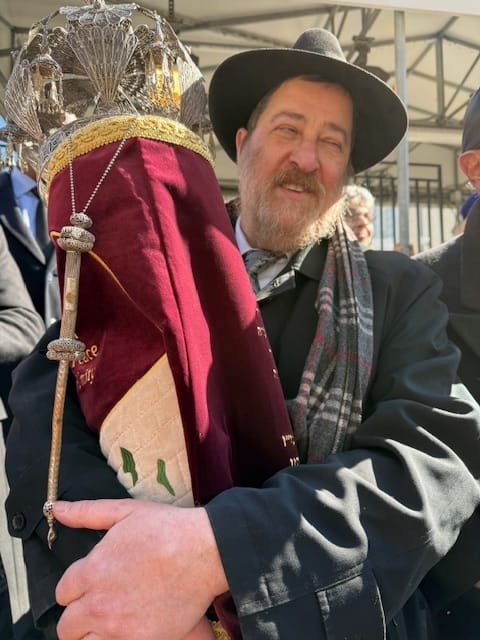Based on the teachings of the Rebbe of righteous memory ; adapted by Eli Touger
He saw him coming. Everyone else knelt to prostrate himself, but Mordechai sat upright. As Haman approached, his eyes met Mordechai’s. They didn’t see anger or rebellion, but rather the calm, resolute gaze of someone who knows what he stands for and chooses whom he stands with.
At that moment, Haman decided that he would try to rid the kingdom of Mordechai and his people.
A little lesson in history: Haman was the Persian viceroy, the most powerful man in the empire that ruled the world. Mordechai was the leader of the Jewish people; he “sat at the King’s gate,” serving as one of the royal counselors.
Haman had the king agree that all the people in the empire should worship him. Mordechai refused to comply.
Now why didn’t Mordechai bow down to Haman? Mordechai was a realistic person. He could have foreseen the consequences of his refusal. Why was he willing to risk everything – not only his own life and position, but that of the entire Jewish people?
So Haman was asking to be worshipped like a god. Big deal. Bow down to him and go further. Why waste more time about it? It definitely doesn’t make sense to give up one’s life – and risk those of one’s entire people – not to bow down.
But that’s the point. There are some things that are above making sense. There are immutable rules which G‑d wove into the very fabric of the universe. There is no way they can be broken. If a man tries, he will break himself against them.
Acknowledging G‑d and refusing to acknowledge any other power are the two most fundamental of these laws. Mordechai saw bowing down to Haman as a challenge to the fundamental core of his existence. Of course, he was not going to believe in Haman’s divinity. But no one was asking him a philosophical question. It was the deed that was most important.
Would he bow down to Haman and thus show his acceptance of the Persian empire as the most powerful force in his life? Or would he defy Haman’s decree and incur his wrath, but demonstrate his connection to G‑d?
For Mordechai, it wasn’t a question. Mordechai didn’t separate his faith from his live, or his principles from his day-to-day modus operandi. He lived what he believed in; he believed in what he lived. There was no dichotomy.
And this wasn’t true only of Mordechai. The entire Jewish people stood behind him. Even when Haman passed a decree calling for every Jew in the empire to be executed, they did not try to hide their Jewishness. On the contrary, they intensified their adherence to the Torah and its commandments.
Abstract idealism? An impractical approach?
Well, let’s see what happened. Haman was killed, Mordechai was given his position, and instead of the Jews being slain by their enemies, they annihilated all those who rose against them.
Not bad for idealism.
Because this was not just idealism, it was an awareness of the reality of our existence. It’s G‑d’s world. And when Mordechai and the Jewish people affirmed that, they were successful.
One further point: When Mordechai and the Jewish people affirmed of their Jewish identity and faith in G‑d, they did not retreat into isolationism. Mordechai became the viceroy; he – and his people – took a far wider role in Persian affairs than before. And while doing so, he proudly emphasized his Jewish identity; everyone referred to him as “Mordechai, the Jew.”
The two aren’t contradictory. Since one Judaism and one’s connection to G‑d are inherent facts of one’s existence, affirming them makes one more in sync with His order for the world, and more able to play a significant role within it.

